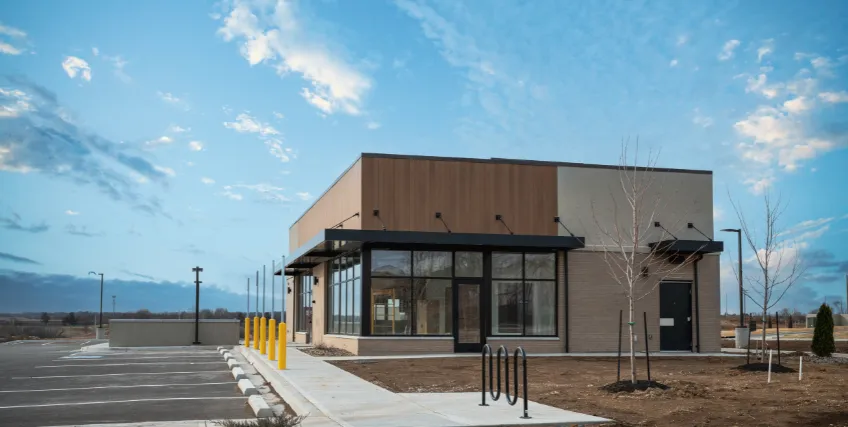What Are Alternative Business Loans and How Do They Work?
January 06, 2025 | Last Updated on: January 06, 2025

This article discusses:
- What an alternative business loan is
- Why seek a business loan through an alternative lender
- Pros and cons of alternative business loans
- Is an alternative business loan right for your business
- Types of alternative financing
- How alternative business loans work and other FAQs
If you ask any small business owner what the most challenging aspect of owning a business is, many would answer qualifying for a business loan or securing funding for their business venture. Not long ago, the only option for a business loan was through your local bank or the U.S. Small Business Administration. But many business owners don’t qualify for traditional loans due to their strict requirements, leaving many entrepreneurs to seek alternative funding.
Thankfully, alternative business loans have become somewhat commonplace in recent years, giving many business owners the capital they need to carry out their business plans. But what exactly are alternative business loans, and do they work the same way as traditional bank loans?
Here’s a deeper dive into alternative business loans so you can determine if they’re right for your business.
What is an alternative business loan?
An alternative business loan is any non bank type of small business financing that isn’t through a traditional lender (banks, credit unions, SBA, or other conventional financial institutions).
Alternative loan providers function similarly to traditional lending institutions, except they don't have the rigid requirements banks have.
Typically, an alternative loan works better for small business owners who can't secure funding from a traditional bank. These include:
- High-risk businesses
- Businesses that don’t meet SBA or bank underwriting requirements
- Business owners with low or poor credit
- Businesses needing a smaller loan amount
- Immigrant, female, or minority-owned businesses
Alternative lenders can find ways around the obstacles sometimes faced by business owners in need of funding. In many cases, an alternative business loan can help move those business plans forward.
Why an alternative lender?
Many traditional lenders have become opposed to taking on risk, prompting them to approve only applicants with excellent credit or a great deal of collateral. But even when a small business owner is able to secure funding through a traditional lender, they have to wait for months to close the deal.
In today’s business climate, competition is fiercer than ever. That means time is of the essence when growing your business.
Alternative lenders are typically online businesses rather than brick and mortars, and often provide more flexible lending options than traditional banks do.
Online lenders also use more streamlined processes, avoiding the red tape that can sometimes tie up a loan application. That means they can facilitate a business loan much more quickly.
As a result, small business owners and entrepreneurs are increasingly getting their small business loans through alternative lenders.
Alternative business lenders have only one focus – providing funding to small businesses.
Because alternative loan providers specialize in business loans, they’re much more adept at overcoming obstacles borrowers frequently face, whether it’s a lower minimum credit score or a more inexperienced entrepreneur seeking funding.
Every business owner has a vision of where they want to take their dream of owning and growing a business. An alternative lender can bring that vision to reality when conventional financing seems impossible.
What are the pros and cons of alternative loans for a business?
As a savvy business person, you likely understand that with any business transaction or financial commitment, you want to explore its advantages and disadvantages.
Here’s a look at some of the pros and cons of an alternative business loan:
Pros
- Fewer eligibility requirements, easier application process, less paperwork, and higher approval rates
- Quick turnaround for receiving funds
- More flexible loan options with different types of loans to meet your business needs
- Fewer limitations in how you use the loan funds
Cons
- Often short-term loans with a shorter time to pay back the loan
- Sometimes higher interest rates are charged
- More frequent repayment is sometimes required
- Sometimes there are more fees charged
As you can see, alternative business lending has its merits and disadvantages. But many small business owners today find it’s a convenient option for financing their business needs.
Obviously, if you can get financing through a traditional lender or bank and you’re not in a rush for a business loan, it’s usually the better option.
But typically, the need for a business loan is immediate, prompting many small business owners to seek an alternate solution.
Is an alternative business loan right for your business?
There is no simple answer as to whether alternative funding makes sense for you and your business. Your need for funding will be unique each time it becomes necessary, as is your business’s circumstances. But sometimes, it’s a no-brainer that getting your business loan with an alternative lender is a logical next step, such as in the following situations.
You’re unable to meet the strict criteria of a traditional lender.
The truth is that getting approved from a bank or for an SBA loan happens less than you might think. Even businesses with a strong financial history, multiple years of annual revenue, and cash flow are sometimes turned down for a business loan with a conventional lender.
So if you know that your credit score is low, or if you haven’t had a chance yet to build a strong business credit score, chances are, you won’t be able to receive funding from a bank.
Alternative loan providers don’t just look at your past. They look at what they believe your future can be if you have the capital needed to grow your business to its potential. As such, they are more likely to approve your business loan, even if your credit or financial history isn’t optimal.
Alternative lenders consider other metrics, such as your payment history with vendors, cash flow, down payment, and other things along with your credit, and they’re more likely to find a way to fund your venture.
You have an immediate need for funding.
Sometimes a business needs funding immediately because of an unexpected opportunity with a short deadline. Emergencies also occur, and extra capital is necessary to deal with them.
Either way, the loan process with a traditional lender often takes weeks or months. During that time, business owners wonder whether they will even get approved for financing.
With a competent alternative lender, those concerns can be put to rest. The alternative loan process is easy and efficient, and you’ll learn within minutes or hours whether or not you can receive business funding.
Many small business owners who’ve applied for funding with Biz2Credit report having their loan funds within 24 hours of applying for financing. It doesn’t get any better than that.
Your small business hasn’t been open for long.
Traditional lenders often want a lengthy track record and years of financials to examine before they’ll even consider loaning you money.
If your business has been open for less than two years, an alternative lender is more likely to approve your loan.
Some alternative lenders will consider loan applications from business owners who have only been in business for six months.
So if you’re a startup or newer business, an alternative loan is probably your best bet.
You don’t need a large loan.
Traditional business loans are often high-dollar loans. Banks prefer larger loans because they make more money over the long term.
But alternative lenders have a loan size for every package, with loans ranging from a few thousand dollars to a few million.
So if you don't need a large sum of money to put your business plans forward, an alternative loan might be a good option.
You operate a high-risk business.
Banks are conservative when loaning money to businesses they deem risky. Riskier businesses are those that face regulation, companies that operate with inconsistent revenue, and highly competitive businesses.
Regulated businesses are risky because regulations are continuously evolving and changing.
Some businesses are also seasonal, face lows and highs, and have fluctuating revenue, potentially leading to cash flow problems.
And if your business is saturated with competitors, banks are more likely to hit the pause button on your loan application.
Even if a high-risk business is approved for a traditional loan, chances are, it will be subject to a higher interest rate.
The aforementioned issues are generally not a problem with alternative lenders. Their approval criteria are more liberal, and they’re more likely to issue loan disbursements to businesses that traditional lenders consider risky.
Types of alternative financing
Alternative financing includes several loan solutions to fit every potential need. Some of the most common alternative loans include:
- Business line of credit. A line of credit is a predetermined amount of money that the lender approves as a credit line. You can then withdraw funds up to the fixed amount approved. The benefit is that you only pay interest on any amount borrowed at the time (similar to business credit cards).
- Equipment financing. This kind of financing is one of the few types of alternative loans where the money you borrow must be used for a specific purpose. In this case, it’s for equipment, and the reason you must use the loan funds on equipment is that it is used as collateral for the loan. Equipment financing usually has lower interest rates and the quickest approval because the lender is less interested in your business’s revenue or your credit. Equipment loans are shorter term because they tend to be tied to the projected life span of the equipment.
- Term loans. Term loans are a type of installment loan whereas the lender gives a lump sum upfront that is repaid in regular monthly intervals until the loan is paid off. The advantage of business term loans is the payments and the interest rates are fixed and it’s easier to budget the payments. They’re also more flexible, meaning you can use the loan proceeds for a wide variety of needs, from company vehicles to real estate to inventory or equipment.
- Working capital loans. A working capital loan is sometimes necessary to help a business meet its short-term obligations, such as workers’ salaries, accounts payable, and other business expenses. Other scenarios where a working capital loan is of benefit are when extra cash is needed to purchase inventory, when you have a cash shortfall due to unpaid invoices from customers, or during slower months if you own a seasonal business.
Other types of alternative financing include real estate loans, merchant cash advances, invoice factoring, and invoice financing.
Get in touch with an alternative loan provider to discuss your business needs and determine which type of financing is right for your business.
Alternative loans FAQs
How do alternative business loans work?
Alternative lending works similarly to traditional business loans. First, you decide how much you need and what you will use your loan funds for. Then, choose a lender and gather the necessary documentation required to complete your loan application.
Traditional lenders will usually require more comprehensive documentation while alternative lenders will ask for less documentation.
Some things that might be required are business bank account and bank statements, tax returns, financial statements, personal credit score or business credit history, accounts receivable and payable, etc.
Every lender will have its own requirements regarding documentation, so follow the guidelines of the lender you choose. Then, complete and submit your small business loan application and wait to see if you’ll receive funding. The good news about funding with an alternative lender like Biz2Credit is that you rarely have to wait more than a day for an answer.
How much do alternative loans cost?
There is no set loan cost as every business loan is different. Each lender, whether traditional or alternative, has different loan repayment terms as does the type of loan you get.
Also, some lenders charge fees, while others don’t. With some lenders, those fees can add up.
Another thing to keep in mind is that some lenders charge prepayment penalties, closing costs for the loan, and more that can add to the total cost of your loan.
It’s a good idea to review your loan documents closely to see just how much your loan will cost you.
Is it possible to get an alternative business loan with bad credit?
The simple answer is yes. Alternative lenders look beyond your credit history when considering your business loan. They also examine your business’s revenue, your business experience, your business plan, and your commitment to offering a personal guarantee, as well as other factors when evaluating a loan application.
The bottom line is that getting a business loan is an important step in business ownership. It’s vital to partner with a lender who understands all the variables involved and who will work with you to get you funded.
Yousaf Razzak understands the importance of building a working relationship with a business lender that looks at the whole picture. He was in the middle of expanding his restaurant just as Covid started impacting businesses. While traditional banks were turning down high-risk loan applications, Biz2Credit worked with Yousaf to facilitate his business expansion, even though his business was struggling at the time.
FAQ
What is alternative business financing?
As the name suggests, an alternative funder or finance provider is an alternative option for funding businesses that don't get loan approval from traditional banks. These companies have multiple options available to them, which depend upon the qualifications, needs, and term loans of the business.
What is alternative lending?
Alternative lending is also known as online or fintech lending; it is a type of financing option that includes a non-bank lender. These lenders are there to help businesses that face difficulty qualifying for traditional financing, especially the ones that need quick funding.
What is the alternative loan funding?
Alternative loans are a source of funding that can be obtained outside of traditional banking institutions. The federal government doesn't guarantee these loans, but they can be used by students and businesses to address financial needs.
Why avoid alternative lenders?
Alternative lenders can be risky for many reasons, including:
- Higher interest rates: Alternative lenders generally charge higher interest rates than traditional banks as they take more risk.
- Collateral or personal guarantee: Some alternative lenders may ask for collateral or a personal guarantee.
- Minimum loan amounts: Some lenders can only offer a certain minimum amount, that can be too large for some businesses.
- Shorter loan terms: These loans can have shorter terms.
- Lack of transparency: Since they are not regulated, they may not keep transparency about financial data.
What are the risks of alternative financing?
Alternative financing includes lot of risk factors like:
- Incomplete credit reporting
- Less favorable terms
- Increased risk of losing home equity
- Higher costs
- Legal complications
- Shorter term lengths
- Fraud
Frequent searches leading to this page
loan refinancing, business credit score, business short term loans, new business lending







